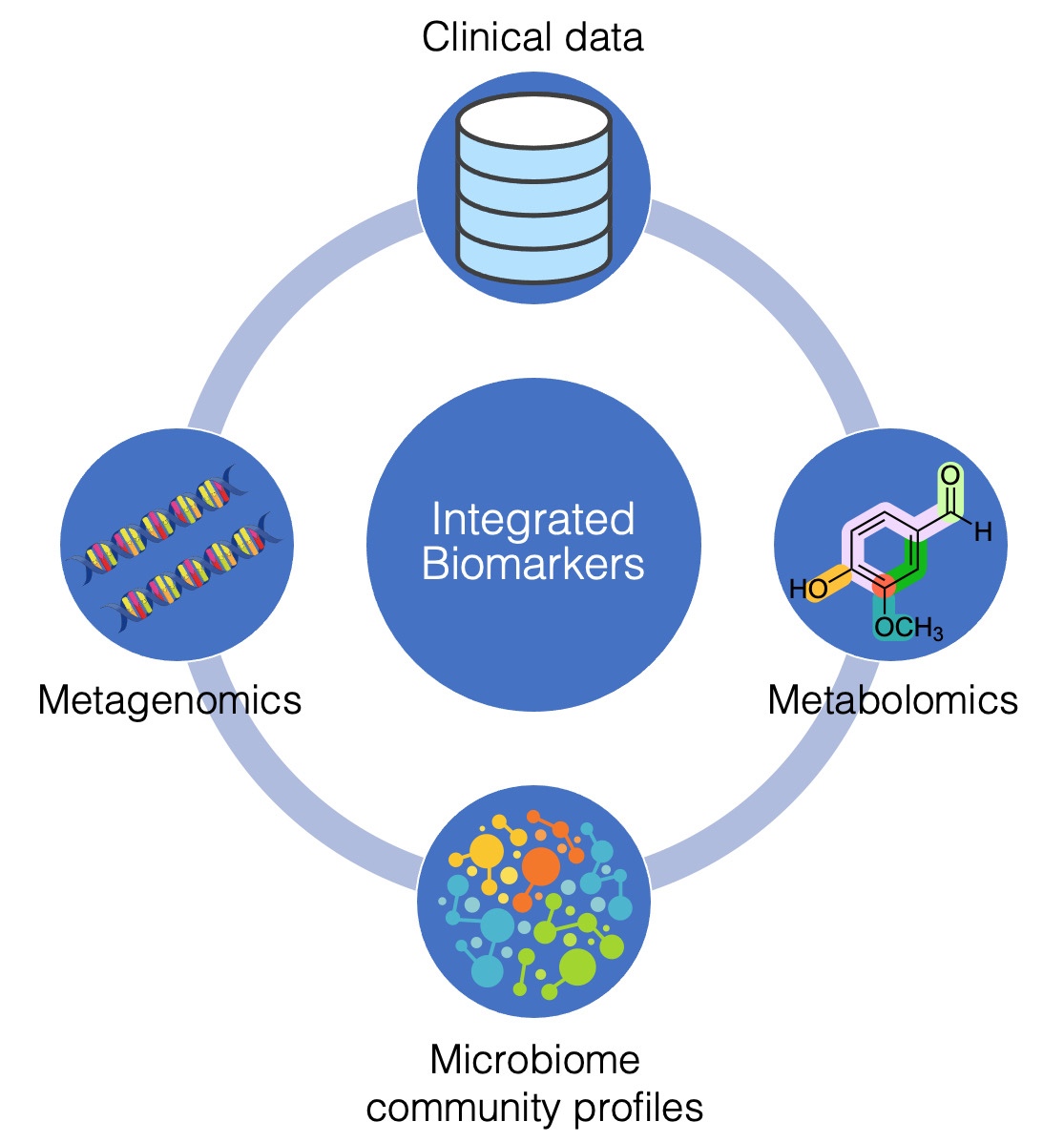Mitigating Transplant Risk with Microbiome Multi-Omics

Allogeneic hematopoietic stem cell transplantation (allo-HSCT) is the only effective treatment for certain blood cancers and disorders. This is a life-saving but dangerous procedure, with a high rate of side effects including infection and graft-versus-host-disease (GVHD) . While the patient’s gut microbiome is linked to mortality and morbidity, predicting outcomes from a single data type yields limited resolution.
We hypothesize that hybrid biomarkers incorporating various data streams—including microbiome community composition, metabolomics, and clinical metadata—could generate improved predictions for patient response to allo-HSCT . To do so, we are conducting a prospective cohort study at the University Hospital Basel, following allo-HSCT patients during treatment and recovery over 180 days. Ultimately, we aim to use this knowledge to design personalized measures to prevent and mitigate allo-HSCT side effects.
1Gooley TA, Chien JW, Pergam SA, Hingorani S, Sorror ML, Boeckh M, Martin PJ, Sandmaier BM, Marr KA, Appelbaum FR, Storb R, McDonald GB. 2010. Reduced Mortality after Allogeneic Hematopoietic-Cell Transplantation. New England Journal of Medicine 363:2091–2101.
2Alborghetti MR, Correa MEP, Whangbo J, Shi X, Aricetti JA, da Silva AA, Miranda ECM, Sforca ML, Caldana C, Gerszten RE, Ritz J, Zeri AC de M. 2019. Clinical Metabolomics Identifies Blood Serum Branched Chain Amino Acids as Potential Predictive Biomarkers for Chronic Graft vs. Host Disease. Front Oncol 9:141.
